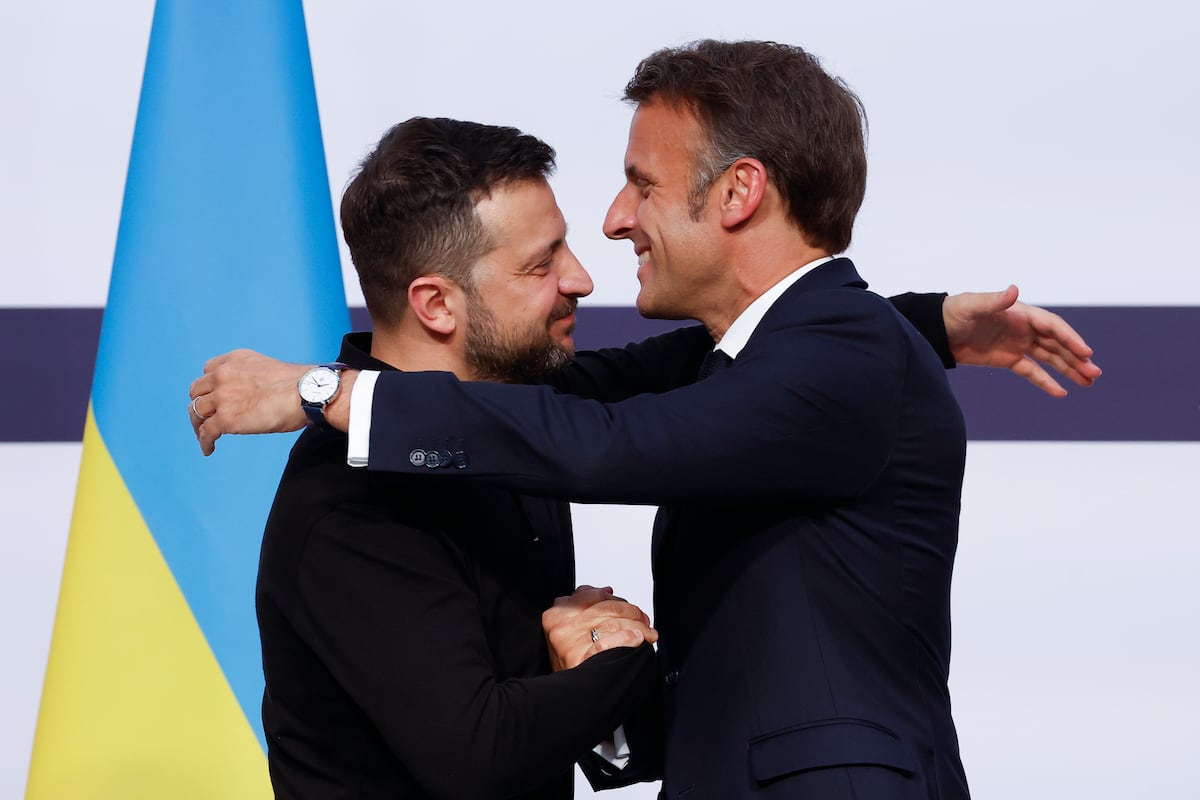France's Military Aid to Ukraine: A Qualitative Leap
The French contribution to the war effort in Ukraine has taken a significant turn with President Emmanuel Macron's decision to send military instructors and transfer combat aircraft. Despite criticisms, Macron maintains that this move does not escalate the war with Russia. The deployment, previously seen as taboo, aims to support Ukraine amidst growing concerns about its defense capabilities during the ongoing Russian offensive. Ukrainian President Volodymyr Zelensky, during a recent visit to France, expressed gratitude for this aid, emphasizing the need for swift soldier training.
Zelensky highlighted that the presence of French instructors in the western part of Ukraine would speed up the preparation of Ukrainian soldiers, avoiding the need to send them abroad for training. Macron echoed this sentiment, stating Ukraine’s urgent need for more trained soldiers. “We want to do everything possible to help Ukraine,” Macron remarked. He assured that French soldiers would not be deployed to the front lines, preserving France's stance of not being at war with Russia while fully supporting Ukraine’s sovereignty.
Training and Aircraft Transfer
The announcement coincided with the 80th anniversary of the Normandy landings, with Zelensky being a special guest. Macron and US President Joe Biden, during their speeches, drew parallels between the fight for democracy in 1944 and the current defense of Ukraine against Russian aggression. Biden explicitly apologized for the delay in US aid due to congressional issues, reassuring continued support.
France plans to transfer Mirage 2000-5 fighter jets to Ukraine, effective by the end of the year after Ukrainian pilots complete necessary training. Macron, during a press conference with Zelensky, mentioned the formation of a European coalition to train Ukrainian soldiers, with several partners already on board. This initiative would involve training and equipping a brigade of 4,500 soldiers.
Macron's decision has drawn criticism both domestically and internationally. Kremlin spokesman Dmitri Peskov accused France of escalating tensions, while in France, political figures from the far-right and Communist Party criticized Macron for his approach. Western nations have been cautious in providing military aid to Ukraine to avoid being deemed 'co-belligerents' in the conflict. However, Macron’s recent statements indicate a shift, emphasizing the necessity of preventing a Russian victory.
- Macron's commitment to assist Ukraine through the transfer of Mirage 2000-5 fighter jets involves considerable logistical planning. By summer, Ukrainian pilots will begin their training in France, involving initial sessions on the Alpha Jet before advancing to the Mirage 2000-5. This process ensures that by the end of the year, Ukraine will have operational pilots ready to defend its airspace.
- France's efforts to build an international coalition involve persuading other nations employing Mirage aircraft, including Greece, India, Qatar, the United Arab Emirates, and Brazil, to contribute to the cause. Macron’s strategy is to distribute the burden of support across multiple nations, thereby reinforcing a unified stand against Russian aggression, while preventing the weakening of France's own defense capabilities.






